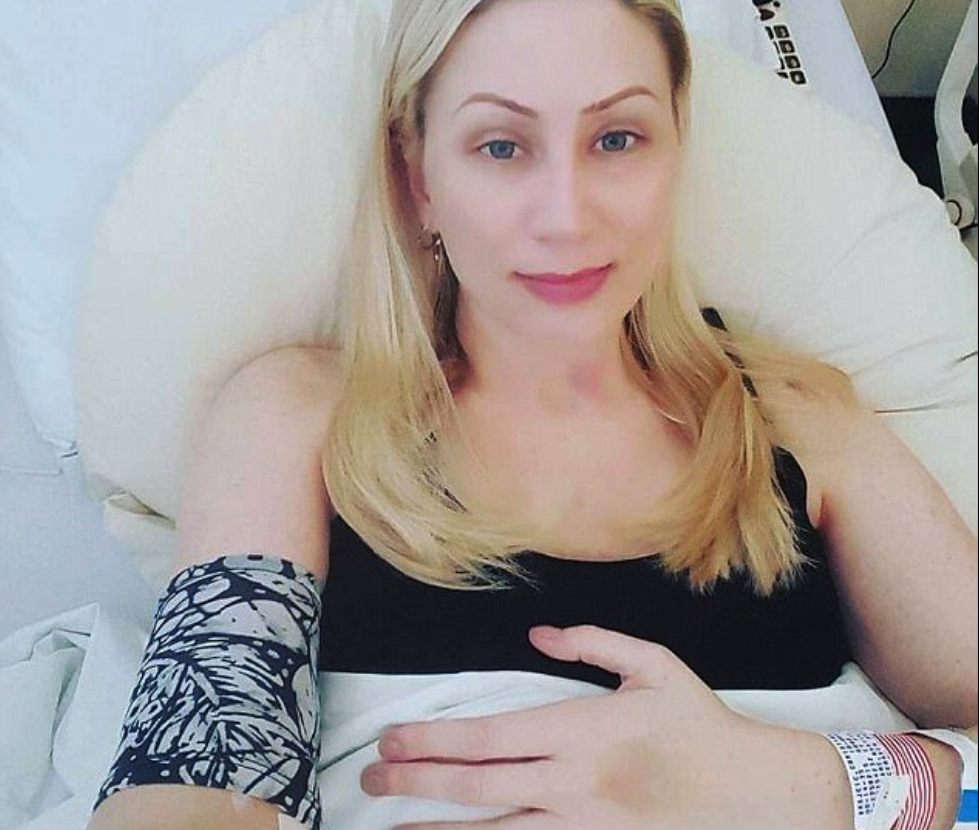The Independent's journalism is supported by our readers. When you purchase through links on our site, we may earn commission.
The vaginal mesh scandal has claimed its first victim – and she probably won’t be the last
Chrissy's death was so completely and utterly avoidable. But the male reluctance to acknowledge a women’s pain and to misattribute female health issues is as ancient as medicine itself


Your support helps us to tell the story
From reproductive rights to climate change to Big Tech, The Independent is on the ground when the story is developing. Whether it's investigating the financials of Elon Musk's pro-Trump PAC or producing our latest documentary, 'The A Word', which shines a light on the American women fighting for reproductive rights, we know how important it is to parse out the facts from the messaging.
At such a critical moment in US history, we need reporters on the ground. Your donation allows us to keep sending journalists to speak to both sides of the story.
The Independent is trusted by Americans across the entire political spectrum. And unlike many other quality news outlets, we choose not to lock Americans out of our reporting and analysis with paywalls. We believe quality journalism should be available to everyone, paid for by those who can afford it.
Your support makes all the difference.So it’s finally happened. A woman has died from complications related to her vaginal mesh implant.
Mesh implant, severe complications, partial removal, repeated infections, antibiotic resistance, sepsis, organ failure. She was just 42.
But Chrissy Brajcic is only the first we know of to lose her life in what has become known as the vaginal mesh scandal, or “the new thalidomide”. Her death would not have even made the news just a few short years ago, before the scandal broke.
Consider how many women have received a mesh implant to treat prolapse, incontinence or hernias: an estimated 10,000 a year in the UK alone, and this procedure has been performed around the world for more than twenty years. And it’s still being performed – despite recent healthcare watchdog NICE’s recommendations – since Parliament rejected cross-party calls for a suspension just last month.
Consider that credible estimates of severe side effects of the treatment range from 10 per cent (government reports and leading mesh experts like urogynaecologist Dr Sohier “Suzy” Elneil) to 40 per cent (the FDA, all the way back in 2008). And not just talking chronic pain and loss of sex life – we’re talking organ erosion, perforation, implants slicing into vaginal walls, debilitating infections and loss of the ability to walk or even stand.
Consider also that many side effects either do not manifest themselves for years, or go unreported by sufferers due to ignorance or even embarrassment. Or the estimated two-thirds of surgeons that don’t report mesh removals to the MHRA, since it’s not mandatory to do so.
Consider, more devastatingly, those who are dismissed by medical professionals. Chrissy posted this message on Facebook shortly before she died: “Funny how after going septic and almost dying, now I’m getting respect and being treated well by doctors.”
She joins thousands of women online sharing stories of being sent away, ignored, or having a doctor joke that they should try anal sex or blow jobs instead. The word that comes up most frequently is “hysterical”.
Hysterical woman. What historical resonance that epithet holds. Once a common medical diagnosis with devastating consequences, the male reluctance to acknowledge a women’s pain and to misattribute female health issues is as ancient as medicine itself.
And with all our modern medical advancement, we’re still living in a cultural and medical milieu that has consistently dismissed endometriosis as heavy periods, chronic pain as mere complaining, and female sexuality as simply unimportant. That’s not to mention the persistent ignorance of so many medical professionals (and the public) when it comes to the vagina.
So Chrissy may well not be the first to die. And until things change – until the issue starts to receive the international attention that similar men‘s health scandal undoubtedly would – she probably won’t be the last.
Many women, like Chrissy, are becoming resistant to the antibiotics prescribed for recurrent infections and chronic complications. That means they’ll run the risk of dying from treatable conditions in the future.
The mesh removal surgery, increasingly in demand as the scandal begins to gain a foothold on the national news agenda – is not at all the “simple, quick and easy” procedure that the original implant was touted to be.
Dr Elneil tells me that the surgery, which she now performs regularly, carries high risks of infection, trauma to major organs, voiding dysfunction, deep vein thrombosis, and a 10 per cent-occurrence of lifelong chronic pain. Because the plastic netting devices are designed to be permanent, the removal is often not even fully successful, and has been described as “trying to remove hair from chewing gum” due to disintegration and contamination.
More and more women are seeking the surgery anyway, as a viable alternative to a life of chronic pain, complications and sexual dysfunction. And as awareness of the dangers of mesh implants grow, so will the number of women risking the reversal.
With a little luck, the increasing international scrutiny – and calls for a full ban all over the English-speaking world, in the UK, America and Australia – will discourage women from opting for the device in the first place: a device that most of them don’t even need.
Because that’s the worst part: Chrissy’s death was so completely and utterly avoidable. She suffered from minor stress incontinence following the birth of her second child: a common complication that many believe could be alleviated, even cured, with pelvic physiotherapy. Mesh implants are, for the most part, not the best treatment available, nor are they usually prescribed for life-threatening conditions.
So how can we make her death mean something? As Chrissy wrote, so presciently and so poignantly just days before her heart stopped: “All it took was dying to get better care and better pain management. I will take it... it’s better than fighting for my care.”
We can carry on her fight: campaigning, raising money and awareness of mesh risks and the stories of sufferers. We can continue to challenge a criminally negligent medical device regulatory system that prioritises fiscal wellbeing over physical. We can call out a patriarchal society and medical community that dismisses and delegitimises a woman’s pain, and encourages them to do so themselves.
We can publicise Chrissy’s story in the hope that it might prevent further deaths. But for so many women, whose lives have been utterly and needlessly destroyed, it may already too late.
Join our commenting forum
Join thought-provoking conversations, follow other Independent readers and see their replies
Comments